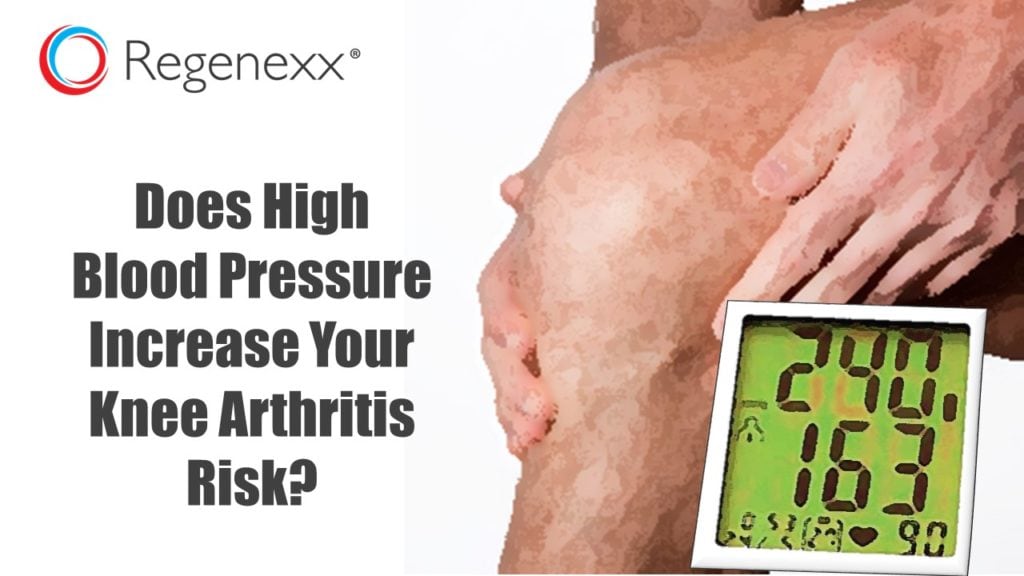Does Hypertension Increase Your Risk for Knee Arthritis?
If you have high blood pressure, does that increase your knee arthritis risk? Are the two merely related, or is there something about hypertension or its causes that creates arthritis?
Knee Osteoarthritis and Hypertension
Knee osteoarthritis (OA) affects the smooth and tough connective tissue in the knee called cartilage. When that cartilage begins to break down, usually as a result of some type of trauma, injury, or even infection, arthritis is the result. This breakdown of cartilage narrows the joint space between the bones, making it easily visible on X-rays.
Over time, the cartilage thins and becomes fragmented as knee OA progresses and the bones thicken, growing outward and forming spurs. The synovial membrane, which provides nourishment to the cartilage and lubrication for the joint, also thickens and becomes inflamed. In severe cases, the cartilage can wear completely away, collapsing the joint space and leaving the patient with very painful bone-on-bone knee arthritis.
Hypertension, simply stated, is high blood pressure. More specifically, as the blood pumps throughout the body, when this process puts excess pressure on the arterial walls, this is hypertension. Genetics and lifestyle issues, such as obesity, sedentary lifestyle with lack of exercise, smoking, drinking, and so much more, are the most commonly associated risk factors for hypertension.
Study Shows Hypertension May Increase Your Knee Arthritis Risk
The new study was a meta-analysis, meaning the data from different but similar studies were extracted and combined into one larger study, with the objective of determining if any association existed between knee OA and hypertension. Eight studies in total were included in the meta-analysis consisting of 9,762 subjects. Researchers looked at both knee arthritis as evidenced on imaging as well as symptomatic evidence and in both cases found significant links to knee arthritis in subjects who had hypertension. So the answer to our title question is, yes, this study does suggest that hypertension could increase your knee arthritis risk. However, an association between the two doesn’t necessarily mean that one causes the other.
Some Additional Risk Factors for Knee Arthritis
The risk of knee arthritis is increased in those with metabolic syndrome as it drastically destabilizes the structure (i.e., chemical matrix) of cartilage. Obesity (apple- or pear-shaped body), high blood pressure, and early diabetes are some key signatures of metabolic syndrome. Beer drinkers are also at an increased risk for knee arthritis; we covered a study last year showing that you are twice as likely to end up with arthritis in the knee or hip if you drink five or more beers a week, likely due to the metabolic syndrome that occurs in regular beer drinkers. Interestingly, wine drinkers in that same study seemed to experience a protective effect against arthritis, with a significantly reduced knee arthritis risk.
Interestingly, nonsteroidal anti-inflammatory drugs (NSAIDs) also appear to be a risk factor for arthritis, particularly if you have arthritis. Findings from a large study last year suggest that taking NSAIDs for pain may actually significantly progress the severity of arthritis over time. Steroid shots fare no better as not only have they been shown to relieve pain no better than a placebo, but steroids are also are associated with significant cartilage loss. Problems in other lower joints, such as an old injury to the ankle that was never properly addressed, can disrupt symmetry and put pressure on the knee, over time leading to osteoarthritis due to those wear-and-tear forces on the knee joint.
Additional big risk factors for knee arthritis are surgeries such as meniscectomy and anterior cruciate ligament (ACL) repair. Meniscus surgery has been shown to be ineffective and harmful to knees, putting patients on the fast track to knee arthritis. Often touted as necessary to protect patients from future arthritis, ACL surgery has actually been shown to protect no better than no surgery. In addition, in teens and young adults, ACL surgery is a strong risk factor for knee arthritis, with two-thirds developing it by the age of 30.
The upshot? My best educated guess is that the same things that cause hypertension, like metabolic syndrome, also cause arthritis, so it’s not a surprise to see the two associated. What can you do to help yourself? Keep trim and in shape, and as you age, avoid the carbs, sugars, and starches, and stay active!

NOTE: This blog post provides general information to help the reader better understand regenerative medicine, musculoskeletal health, and related subjects. All content provided in this blog, website, or any linked materials, including text, graphics, images, patient profiles, outcomes, and information, are not intended and should not be considered or used as a substitute for medical advice, diagnosis, or treatment. Please always consult with a professional and certified healthcare provider to discuss if a treatment is right for you.

